Premier League 'not inclusive' for disabled fans, says Lord Holmes
- Published
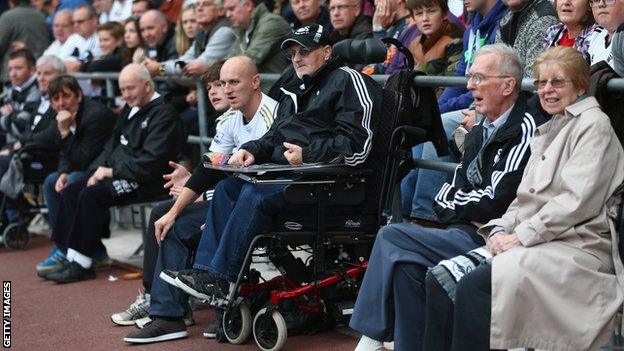
A 2014 BBC investigation found only three of 20 Premier League clubs were providing enough wheelchair spaces
The Premier League lacks a "culture of inclusivity" for disabled fans, says a leading equality campaigner.
Some top-flight clubs have not yet met guidelines on disability access.
Lord Holmes, a member of the Equalities and Human Rights Commission and a nine-time Paralympic swimming champion, told MPs that legal action against clubs and the Premier League remains an option.
Premier League executive Bill Bush said that suggesting clubs were "reluctant" to improve access was "not fair".
Last year Premier League clubs agreed to make their stadiums compliant with official accessibility guidance, external by August 2017.
The pledge followed a 2014 BBC investigation that found 17 of the 20 clubs were failing to provide enough wheelchair spaces.
However, it is estimated that up to a third of clubs will miss this self-imposed deadline.
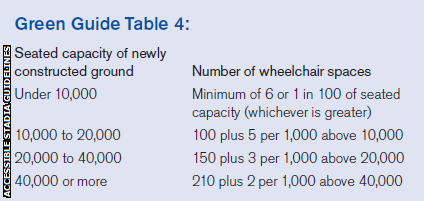
Guidelines on the number of wheelchair spaces expected at stadiums dependent on capacity
Bush told a Culture, Media and Sport select committee on Tuesday that the Premier League is not "hiding" by refusing to name the individual clubs likely to miss disabled access targets by next season.
"Several are short and they know it," Bush told MPs, adding that a club-by-club statement will be published in January.
He said resources were not an issue, but denied clubs were "ignoring opportunities" to make changes to their grounds.
"Much of that work is of absolutely outstanding quality," said Bush. "The clubs are rightly proud of it rather than fearful that they are failing."
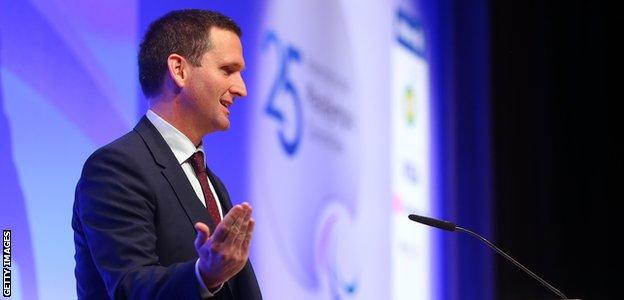
Lord Holmes - as Chris Holmes - won six Paralympic swimming gold medals in 1992, and a further three in 1996
Lord Holmes - Britain's most successful Paralympic swimmer - has led the campaign for improved accessibility at sports stadiums.
"There isn't a culture of inclusion, there isn't even yet a culture of compliance," Lord Holmes told BBC Sport.
"Football is our only national sport, we can only wave our team's flags with pride if we can all be sure that every Premier League ground is accessible to all and there's an inclusive experience waiting for every spectator," the 15-time Paralympic medallist added.
Holmes said he hoped the hearing would lead to further action but warned that both the individual clubs and the league could face legal action if targets continue to be missed.
"It's tragic that we've got to a place where we're even talking about sanctions. This should have begun as a positive transformational change to our national game but we are at this stage because nothing's happened for decades."
Case study - Manchester United fan Vicky Besley
Manchester United supporter Vicky Besley told BBC Radio 5 live that she had experienced problems at stadiums.
She said that fans with disabilities sometimes could not see the play, because of non-elevated platforms and other fans standing up. At some grounds, visiting disabled supporters are forced to sit with the home fans.
"At Anfield, you're actually put in with the home fans, so it's quite intimidating," she said after attending United's 0-0 Premier League draw at Liverpool on Monday.
"There are maybe six United fans and then you're just surrounded by Liverpool fans.
"Clubs seem to just be ignoring what's going on.
"Changes need to happen now because it's going to put the younger generations off going."
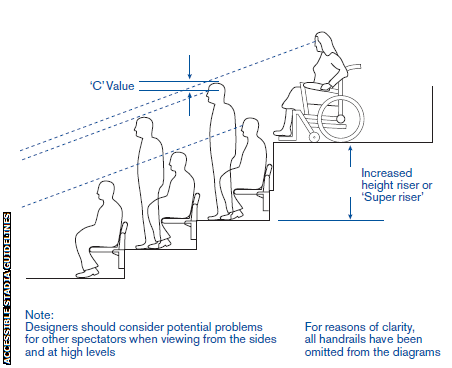
Platforms for wheelchair users need to be elevated so that disabled fans are able to see even when other supporters stand
What do the guidelines say?
No more than 25% of wheelchair spaces should be pitchside
Audio described commentary should be provided for spectators with visual impairments
Disabled fans should be able to make ticket enquiries via both text phones and email
Seating for wheelchair users should be included in any 'family' areas within a stadium
Accessible seating should be provided for both home and away spectators
- Published15 September 2016
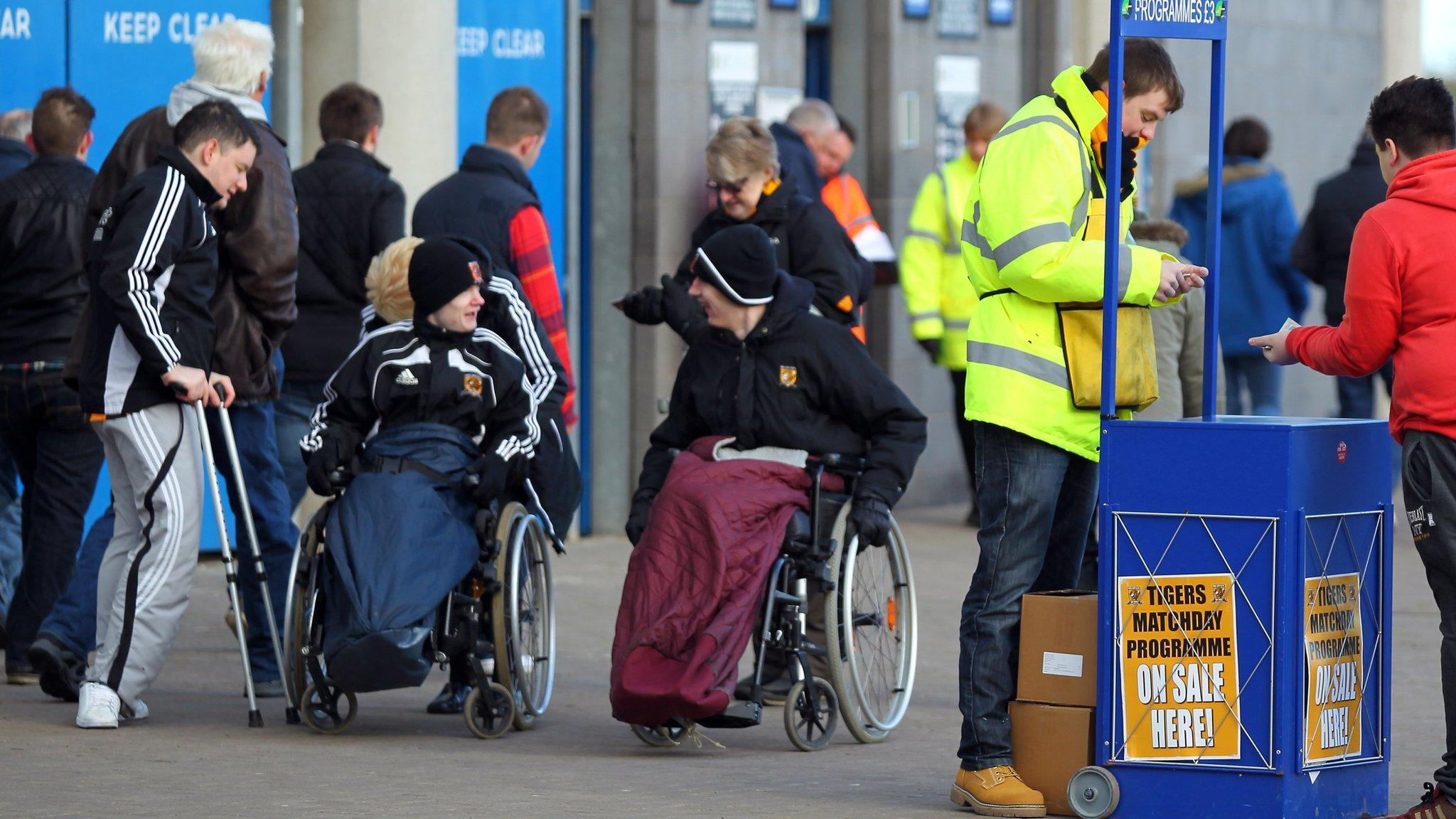
- Published14 September 2015
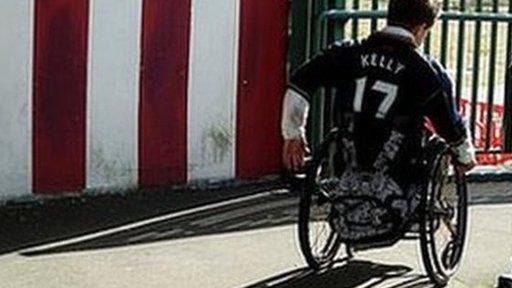
- Published18 March 2014
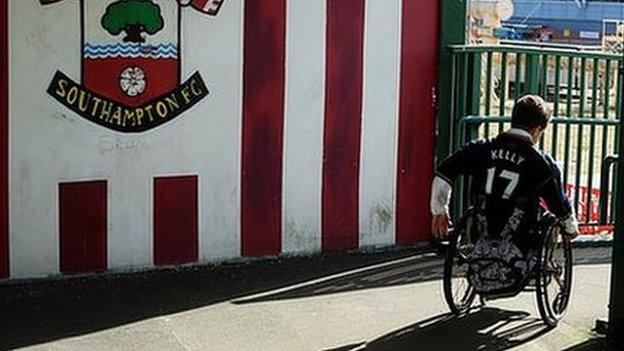
- Published14 January 2018
- Published8 August 2017
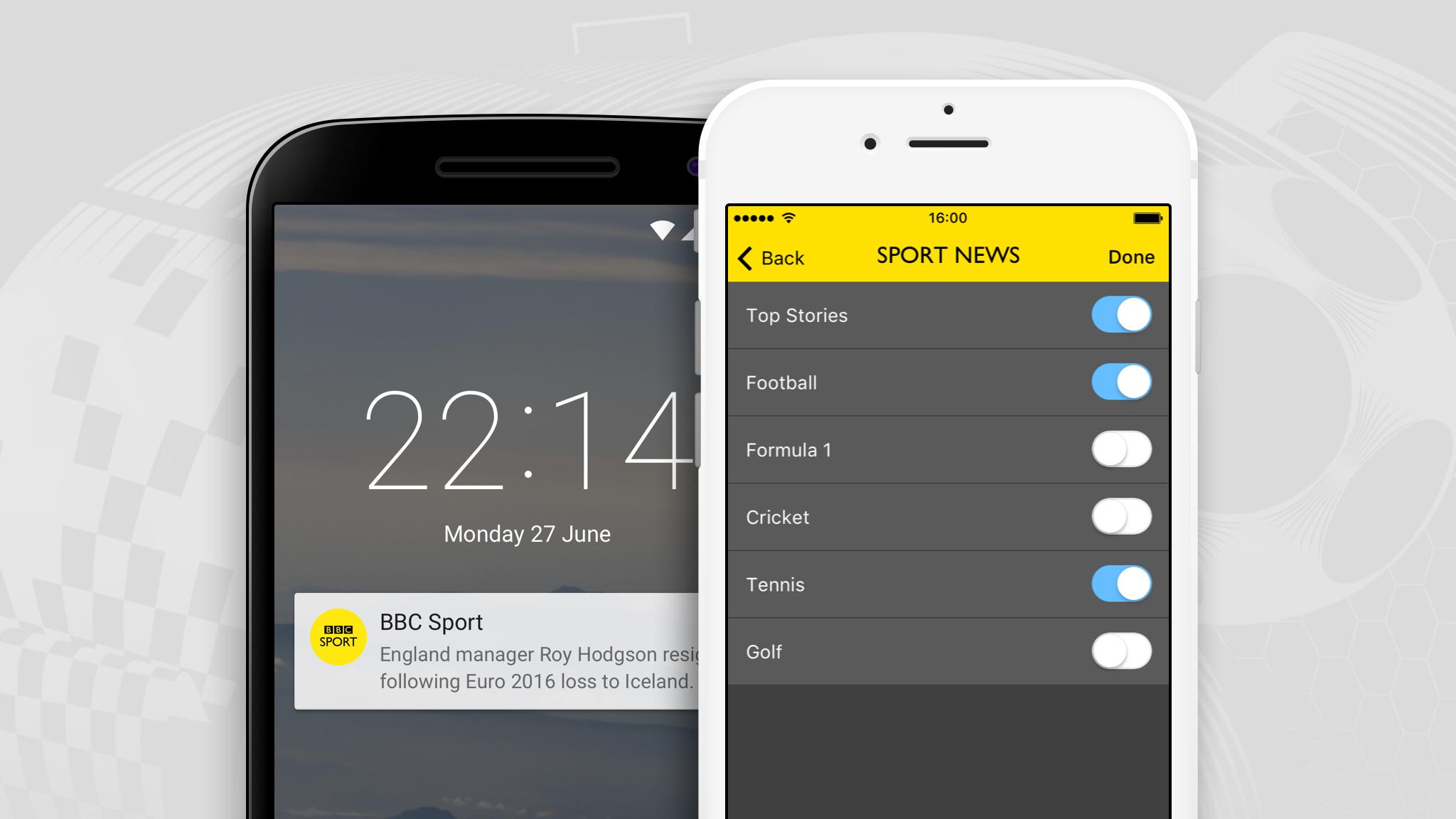
- Published7 June 2019
